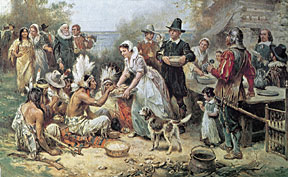 Thanksgiving is often recognized as an inter-cultural holiday, celebrating the cooperation of European Pilgrims and Native Americans, but it is also an interfaith holiday. After all the Wampanoag were not Christian.
Thanksgiving is often recognized as an inter-cultural holiday, celebrating the cooperation of European Pilgrims and Native Americans, but it is also an interfaith holiday. After all the Wampanoag were not Christian.
For American Reform Unitarians* the interfaith nature of Thanksgiving actually reinforces its Christian importance, for we see Christianity not as a religion defined against others, but as an idiom of Truth that can be translated into other idioms.
[This Thanksgiving message was originally published in 2008]
True Christianity has from its inception been a religion that sees the good in members of other religions.
Jesus praised the faith of the pagan centurion over that of his fellow Jews, and used a member of the hated Samaritan sect (considered heretics at the time) as a symbol of goodness in explicit contrast to leaders of his own faith community. When ministering to the Greeks, the Apostle Paul even went so far as to claim that the “Unknown God” long worshiped in Hellenistic religion was in fact the very same God of Abraham and Jesus.
Some might dismiss Paul’s assertion as a marketing technique, and perhaps so. However, the willingness to seek Christian truth in other religions validates Christianity as a religion about reality rather than a religion merely about itself.
There is, in every religious community, a moral tension between loyalism and realism. By realism here, we do not mean the “Christian Realism” of Niebuhr, but realism in the sense that religion is seen as an idiomatic description of reality, therefore open to other forms of description.
This is opposed to the loyalist approach in which that description becomes a mere catechetical shibboleth, a catch-phrase or password, distorting the religion into an entrenched camp isolated (by its own members) from the rest of the universe.
A religion truly about the Creator cannot be an enclave in Creation. The truth of God does not need to be spread across God’s own work by a tiny minority of creatures; God’s truth is evident throughout the universe.
Justin Martyr, despite his sainted status, is likely the primary culprit in this God-denying loyalist tradition as he was the first to attribute other religions entirely to the action of devils. One step more “realistic” is the approach of Paul and other missionaries who attempted to exapt the language and imagery of the cultures they encountered for Christian truth.
But, while this approach treats idiom properly as a tool rather than the stuff of religion itself, it is still prone to error due to the implication that only the language of other religions is valid, not the underlying reality that language describes.
Again, this sort of religion implies an agoraphobic god who fashions a vast universe only to cower in one tiny corner of it, charging mere humans with braving the immeasurable remainder of it in his stead. Religion that genuinely worships the Almighty Creator does not insult God in this way.
The idiomatic approach of Reform Unitarianism takes realism to its full measure by recognizing that some of the underlying ideas of other religions must be valid if the God we worship is indeed the God of all Creation, and not merely an imagined god of ethnic or sectarian autolatry.
For us, the Thanksgiving story represents two groups of God’s children, speaking in different idioms, coming together for a precious moment of peace and communion. The words and labels each used to discuss the ultimate nature of reality and its moral implications may have differed, but if there is such an Ultimate Truth then it must be the same Ultimate Truth for all, despite the difference in languages used to describe it.
The politicized, sectarian, God-denying, and autolatrous view is that the Native Americans were un-Christian heathens. The truly Christian, universal, Creator-affirming, moral view is that while the compassion the Wampanoag showed the Pilgrims may not have been “Christian” charity, it was certainly Christian charity.
Have a wonderful feast day, and give thanks for all of the blessings in your life!
_
* American Reform Unitarians revere Thanksgiving’s Harvest Thursday as one of the Four Great Thursdays alongside Declaration Thursday, Garden Thursday, and Ascension Thursday.
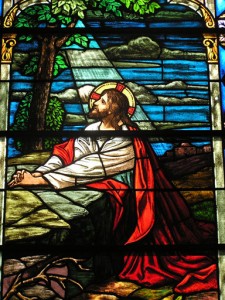 During the Sermon on the Mount, while expounding on anger, adultery, oaths, and retaliation, Jesus repeatedly emphasized the importance of motivation over action. It is not the act of adultery that makes us adulterers, but entertaining the desire. It is not the voicing of our hatred that is the sin, but the hatred itself.
During the Sermon on the Mount, while expounding on anger, adultery, oaths, and retaliation, Jesus repeatedly emphasized the importance of motivation over action. It is not the act of adultery that makes us adulterers, but entertaining the desire. It is not the voicing of our hatred that is the sin, but the hatred itself.

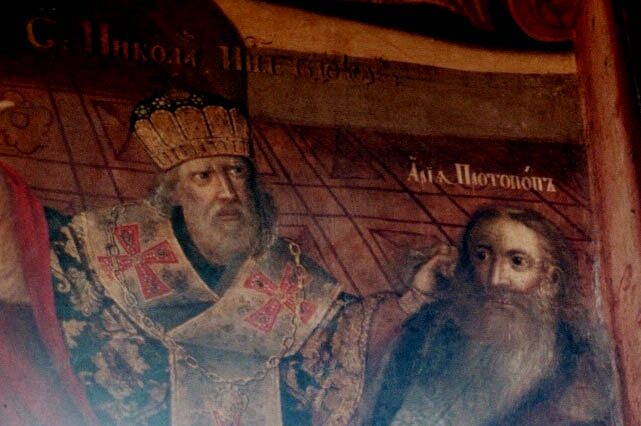
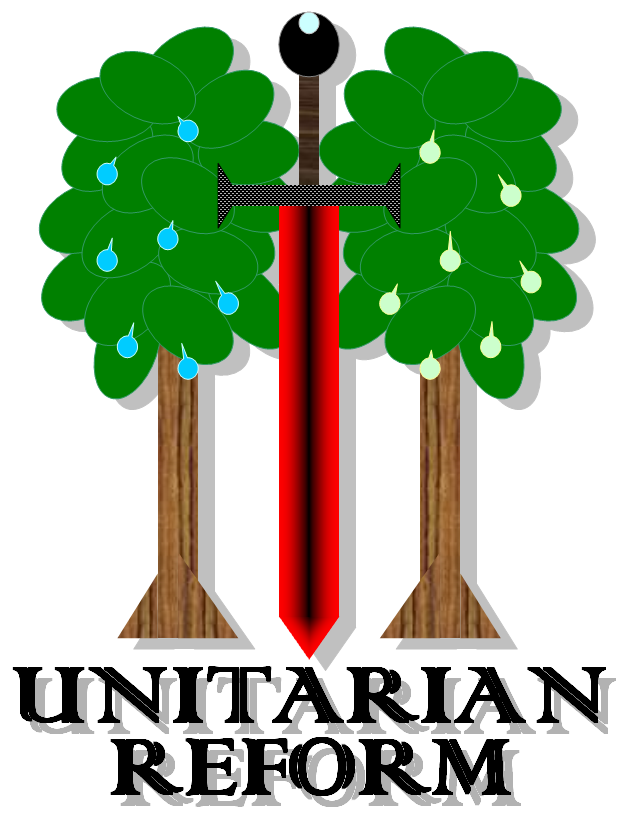
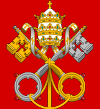 Reform Unitarianism feels a particularly close kinship with the Roman Catholic Church, despite that it is the institution that adopted the apostasy of Trinitarianism. Roman Catholicism retains the sense of the ancient pedigree of Christianity, which more recent off-shoots (which nevertheless imagine themselves reformatory) fail to project.
Reform Unitarianism feels a particularly close kinship with the Roman Catholic Church, despite that it is the institution that adopted the apostasy of Trinitarianism. Roman Catholicism retains the sense of the ancient pedigree of Christianity, which more recent off-shoots (which nevertheless imagine themselves reformatory) fail to project.
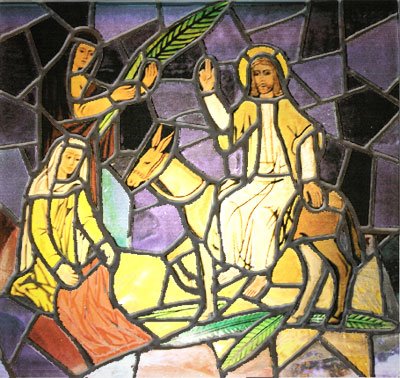 Palm Sunday commemorates the day Jesus entered Jerusalem on the back of a colt (or donkey) with throngs of Messianic enthusiasts paving the way with palm fronds. Celebrations of this holiday therefore often include palms.
Palm Sunday commemorates the day Jesus entered Jerusalem on the back of a colt (or donkey) with throngs of Messianic enthusiasts paving the way with palm fronds. Celebrations of this holiday therefore often include palms.